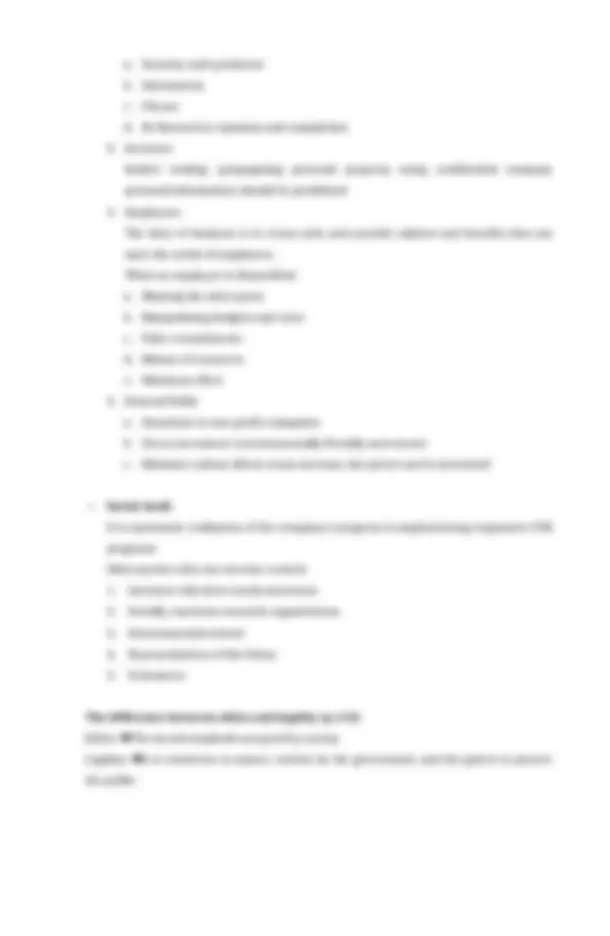



Study with the several resources on Docsity

Earn points by helping other students or get them with a premium plan


Prepare for your exams
Study with the several resources on Docsity

Earn points to download
Earn points by helping other students or get them with a premium plan
Community
Ask the community for help and clear up your study doubts
Discover the best universities in your country according to Docsity users
Free resources
Download our free guides on studying techniques, anxiety management strategies, and thesis advice from Docsity tutors
This summary contains notes about the business introduction
Typology: Cheat Sheet
1 / 2

This page cannot be seen from the preview
Don't miss anything!


Ethics Ethics is standards of attitude and morals accepted by society Questions when faced with ethical dilemmas
a. Security (safe products) b. Information c. Choose d. Be listened to (opinions and complaints)